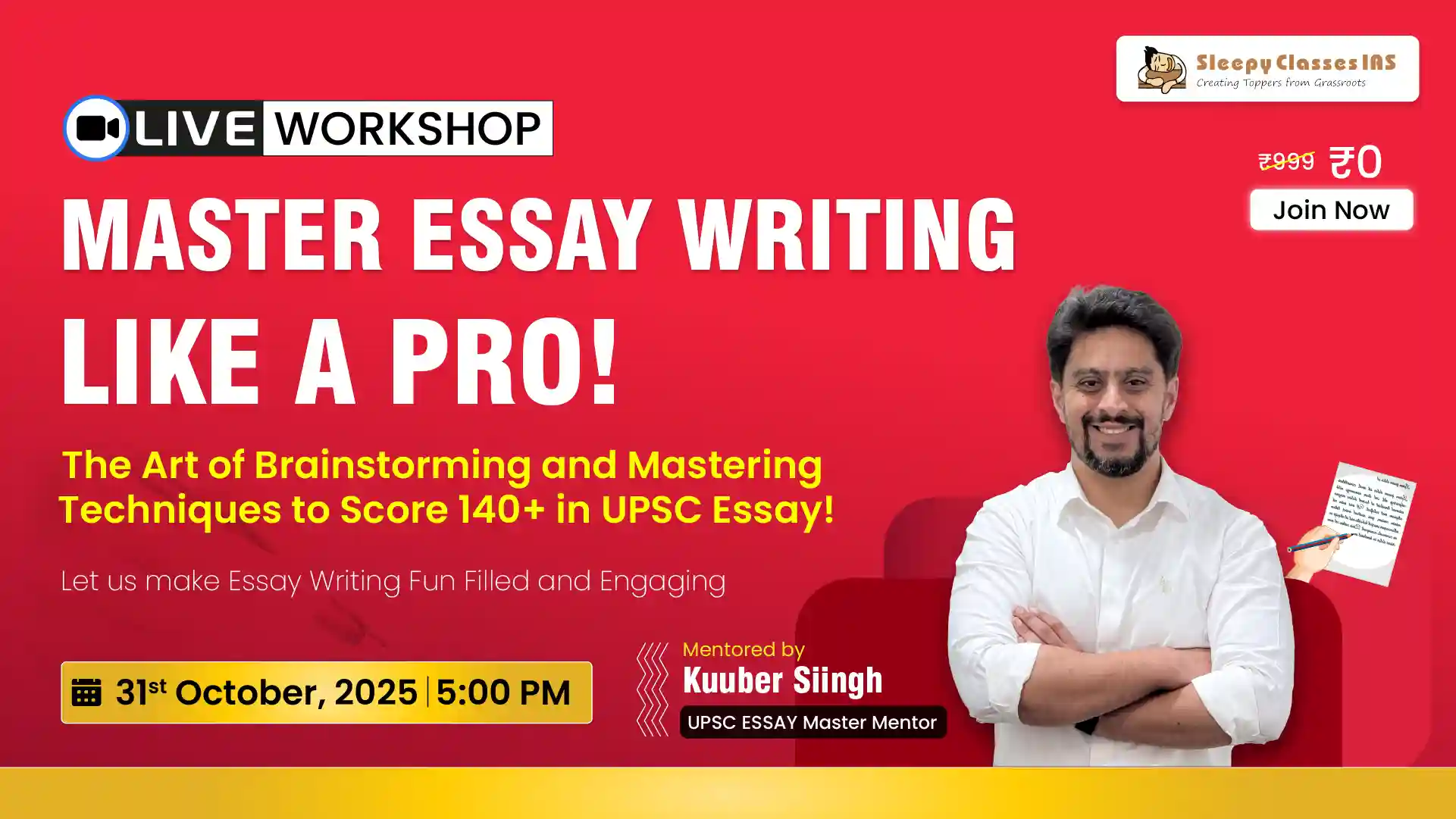The Union Public Service Commission (UPSC) examination is one of India’s most prestigious and challenging competitive exams. Aspirants face an overwhelming volume of study material, making it essential to develop effective reading strategies. This article explores key techniques to help UPSC aspirants tackle extensive study material efficiently and comprehensively.
Key Takeaways
- Understanding the UPSC syllabus thoroughly helps in prioritizing key areas and focusing on important topics.
- Active reading techniques such as highlighting, annotating, and summarizing enhance comprehension and retention.
- Utilizing technology, including digital note-taking tools and educational apps, can make reading more efficient.
- Incorporating current affairs into your study routine ensures you stay updated and can relate topics to real-world events.
- Effective note-making strategies, like creating concise notes and using mind maps, aid in quick revisions and better retention.
Understanding the UPSC Syllabus
The UPSC syllabus is the foundation of your preparation. Knowing the syllabus is key to crack the civil services exam. It outlines the subjects and topics you need to cover, helping you streamline your study process and focus on relevant areas.
Active Reading Techniques
Active reading involves engaging with the material actively, rather than passively scanning through it. Highlight crucial points, jot down notes, and pose questions to yourself while reading. This approach enhances understanding and retention of the content, making revision more effective.
Utilizing Technology for Efficient Reading
Leveraging technology can significantly enhance your reading experience for UPSC preparation. E-books, PDFs, and audiobooks offer convenient access to study material, enabling you to study on the go. However, it’s crucial to maintain focus and avoid distractions when using electronic devices.
Incorporating Current Affairs into Study Routine
Integrating current affairs into your UPSC preparation is crucial for success. A structured approach ensures you stay updated and can effectively link current events with the syllabus.
Effective Note-Making Strategies
Creating effective notes is crucial for UPSC preparation. Concise notes help in quick revision and better retention of information. Use abbreviations and symbols to write faster and capture key points efficiently. Mind maps and visual aids can simplify complex topics and enhance understanding. Regular review and revision of notes ensure that the information stays fresh in your memory. Incorporate active note-taking by summarizing key points and main ideas. This approach not only aids in retention but also makes revision easier.
Time Management and Scheduling
Managing your time effectively is crucial for handling the vast UPSC syllabus. Creating a realistic timetable is essential to ensure you cover all subjects and topics adequately. Time management for working professionals is particularly important given their limited study hours. Allocate specific time slots for different subjects and stick to them to make the most of your study time.
Creating a Study Schedule
A well-structured study schedule helps you stay organized and focused. Break down your syllabus into manageable chunks and assign them to specific days. This approach ensures that you cover all areas without feeling overwhelmed.
Allocating Time for Different Subjects
Prioritize subjects based on their weightage in the exam and your proficiency. Spend more time on challenging subjects while maintaining a balance. This strategy helps in covering the entire syllabus effectively.
Avoiding Distractions and Staying Disciplined
Staying disciplined is key to effective time management. Avoid distractions such as social media and unnecessary breaks. Create a conducive study environment to enhance your focus and productivity.
Consistency and discipline are the cornerstones of effective time management. Stick to your schedule and make adjustments as needed to optimize your study time.
Practice and Self-Assessment
Solving Previous Year Papers
Regularly solving previous year papers is crucial for understanding the exam pattern and the types of questions asked. This practice will help you identify your strengths and weaknesses, allowing you to focus on areas that need improvement. A targeted approach ensures comprehensive preparation for all sections of the exam.
Taking Mock Tests
Mock tests simulate the actual exam environment, helping you practice time management and get familiar with the question pattern. Analyze your performance in these tests to refine your strategies and improve your weak areas. Consistent practice with mock tests is essential for building confidence and enhancing your exam readiness.
Continuous Self-Evaluation
Self-evaluation is a key component of effective preparation. Regularly assess your progress and adjust your study plan accordingly. This ongoing process helps you stay on track and ensures that you are well-prepared for the exam. Incorporate feedback from mock tests and previous year papers to continuously improve your performance.
A 1 year UPSC study plan will provide you with a systematic framework for your learning journey. It will outline what subjects and topics you need to cover, helping you stay organized and focused throughout your preparation.
Practice and self-assessment are crucial components of effective UPSC preparation. At Sleepy Classes, we offer a range of resources designed to help you evaluate your progress and identify areas for improvement. From comprehensive test series to personalized feedback, our tools are tailored to enhance your learning experience. Visit our website today to explore our offerings and take the next step in your UPSC journey.
Conclusion
In conclusion, mastering effective reading strategies is indispensable for UPSC aspirants aiming to tackle the extensive study material efficiently. By understanding the syllabus, prioritizing essential resources like NCERT books, and adopting active reading techniques, candidates can enhance their comprehension and retention. Incorporating methods such as skimming, scanning, note-making, and mind mapping can further streamline the study process. Additionally, leveraging technology and maintaining a structured study schedule are crucial for sustained progress. Ultimately, a strategic approach to reading not only aids in managing the vast syllabus but also builds the confidence and skills necessary to excel in the UPSC examination.
Frequently Asked Questions
What are the key components of the UPSC syllabus?
The UPSC syllabus includes a wide range of subjects such as History, Geography, Polity, Economy, Environment, Science and Technology, and Current Affairs. It is essential to understand the detailed syllabus for both Prelims and Mains to plan your studies effectively.
How can I effectively incorporate current affairs into my UPSC preparation?
To incorporate current affairs, make it a habit to read newspapers daily, follow reliable news sources, and use monthly current affairs magazines. Relate current events to the static syllabus and practice writing answers that integrate current affairs with core subjects.
What are some active reading techniques beneficial for UPSC preparation?
Active reading techniques include highlighting and annotating texts, summarizing key concepts, and engaging with the material through questions and discussions. These methods help in better retention and understanding of the study material.
How can technology aid in my UPSC preparation?
Technology can be a great aid through digital note-taking tools, online resources, e-books, and educational apps. Platforms like Evernote or OneNote help in organizing notes, while apps like Unacademy or BYJU’S provide access to lectures and study materials.
What is the importance of solving previous year papers and taking mock tests?
Solving previous year papers and taking mock tests are crucial for understanding the exam pattern, managing time, and identifying strengths and weaknesses. It also helps in building confidence and improving answer writing skills.
How should I manage my time effectively while preparing for UPSC?
Effective time management involves creating a realistic study schedule, allocating specific time slots for different subjects, and adhering to the plan. Avoid distractions and take regular breaks to maintain productivity and focus.






